No peace with Assad and al-Qaida
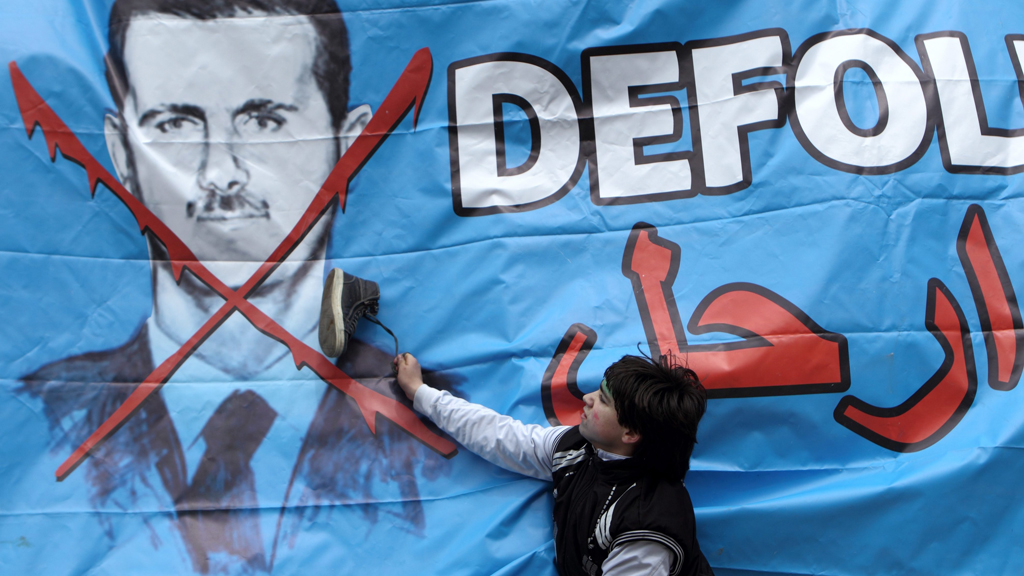
The headlines on Syria at the moment leave a sense of incredulousness. "Islamists" are fighting "Islamists", Assad is the "lesser evil" and our top priority must now be to "combat terrorism" – the terrorism perpetrated by al-Qaida, of course, not by Bashar al-Assad. It is high time to recall what the conflict in Syria is really about and why this is exactly what delegates in Montreux should be talking about, namely the unseating of a murderous regime. Not because we in the West want this, but because the Syrians have demanded it by peaceful means and are being tortured, shot, bombed and starved as a result.
Of course, everything is much more complicated than that. The revolution has morphed into a regional proxy war, demonstrators have become fighters and political activists have become humanitarian aid workers. This is why by the end of the peace conference in Montreux, there will be no peace for the time being.
Out of touch with reality
The main problem is that the current negotiation process is completely out of touch with events in Syria. One side does not want to end the war; the other cannot. The regime continues to portray itself as resolved to fight "terrorism", which means it will continue to bombard opposition-held residential areas and torture dissidents to death.
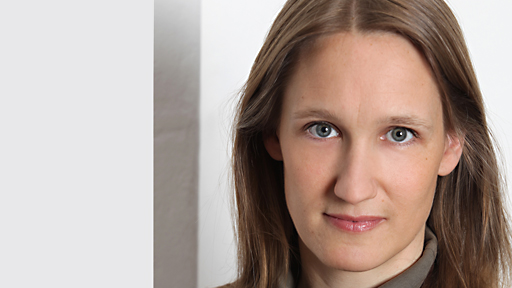
Moreover, the National Coalition for Syrian Revolutionary and Opposition Forces has no influence on the armed resistance because their allies, the rebels of the Free Syrian Army, are too weak. In short, regardless of what is discussed in Montreux, it will have no effect on the actual situation in Syria.
In addition to this, the substantive positions of the various parties are irreconcilable. Bashar al-Assad sees no reason at all to relinquish power. And indeed, why should he? Iran, Russia and Hezbollah are on his side both militarily and economically, he has been internationally rehabilitated as a negotiating partner by the chemical weapons deal and in view of the fact that al-Qaida is gaining ground, some Western politicians really do seem to regard him once again as the "lesser evil".
Deadly indifference
The opposition, on the other hand, can only enter into negotiations aimed at installing a credible transitional government without Assad. Anything else would be political suicide. After all, how could a Syrian opposition leader justify talks with a regime that is simultaneously dropping barrel bombs on civilians and allowing children to starve in sealed off urban districts, if this regime is then allowed to continue as before once talks have ended?
Those who warn against the swift departure of Assad on the grounds that this could allow the jihadists to fill the power vacuum are misjudging the reality on the ground. It is not the toppling of the regime that could pave the way for al-Qaida's accession to power; al-Qaida's path to power has already been paved by the prolonged killing, the inaction of the West and the ignorance of the world about the plight of dying Syrians.
It was Assad himself who nurtured extremist groups in the region: he destroyed Syria to such a degree that jihadists were able to establish themselves in the chaos. Not only that, he also profits from their presence in Syria, because they affirm his propaganda that he is fighting a war on terror and sow discord among his opponents. This is why it is absurd to regard Assad as an ally in the war on al-Qaida. His "terrorists" are not the members of al-Qaida-offshoot "Islamic State in Iraq and the Levant" (ISIS or ISIL), but unyielding and unaffiliated Syrians in the suburbs of Damascus, in Aleppo and in Homs.
Fighting on two fronts
In reality, the regime is not fighting ISIL, but the rebels who are confronted with the terrorists in "liberated" areas and who have just declared war on them. Instead of working together to overthrow the regime, they are now fighting on two fronts: against Assad and against al-Qaida.
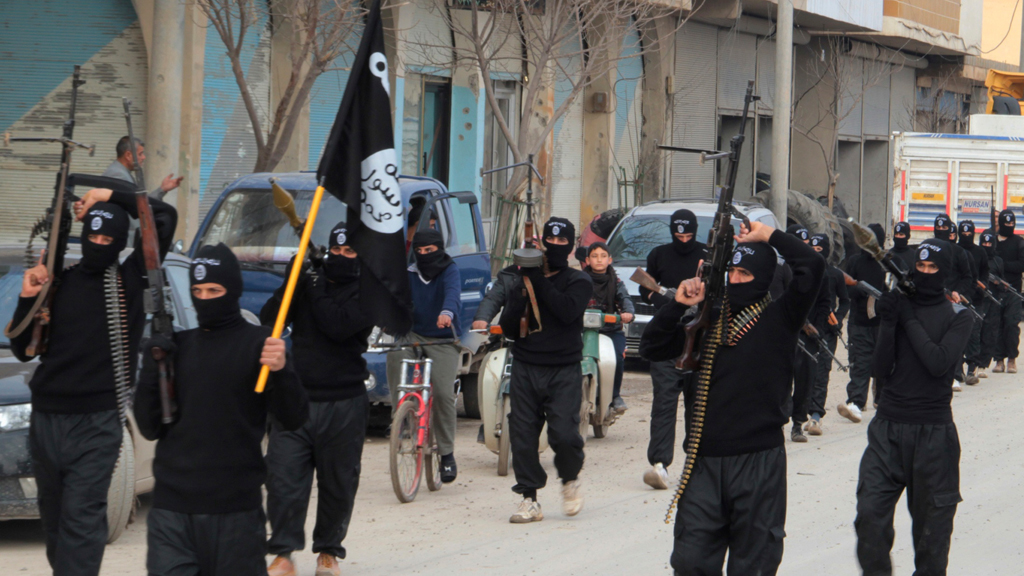
Those who want to prevent Syria from becoming a place of retreat for international terrorists must help to end the war against Assad as quickly as possible. After all, only a transitional government formed by consensus can unite the Syrians in the war against terrorism.
Admittedly, Syrian rebels are a highly confusing bunch of disparate brigades, some of which are, outwardly and rhetorically at least, barely distinct from al-Qaida groups. In particular sections of the "Islamic Front", Syria's locally-based Islamist groupings, appear to be as radical as ISIL.
But there is one crucial difference: ISIL wants to establish a caliphate in the entire region and ensure Islamic world dominance, while the "Islamic Front" wants to liberate Syria from Assad and then set up an Islamic state in whatever form this might take. ISIL represents trans-national terrorism; the rebels of the "Islamic Front" on the other hand are fighting for self-determination at home.
The fact that they sometimes sound like Salafi hardliners has to do with their financial backers. Turkey, Saudi Arabia, Qatar and other Gulf states are sponsoring Sunni Islamism and select "their" brigades accordingly. They have a simple rule: the more Islamic a group appears, the more money and weapons it receives.
Because the West is largely absent as a supporter of the armed conflict, long beards and black-and-white headbands emblazoned with the Islamic credo are more lucrative in Syria than smooth-shaven faces and green uniforms. Consequently, at the present time, any ideologies on parade are less an expression of deep-seated political convictions and more a means of financing the combat.
"Assad and ISIL are one"
At the beginning of January, the 18 million Syrians still in the country provided stark proof that they want neither Assad nor al-Qaida: while the military offensive raged, co-ordinated protests against ISIL took place across the north of the country. The slogan of these protests was "Assad and ISIL are one". The mobilisation shows that both a political consciousness and the courage to strive for self-empowerment of the kind that would have been inconceivable three years ago have developed in Syrian society.
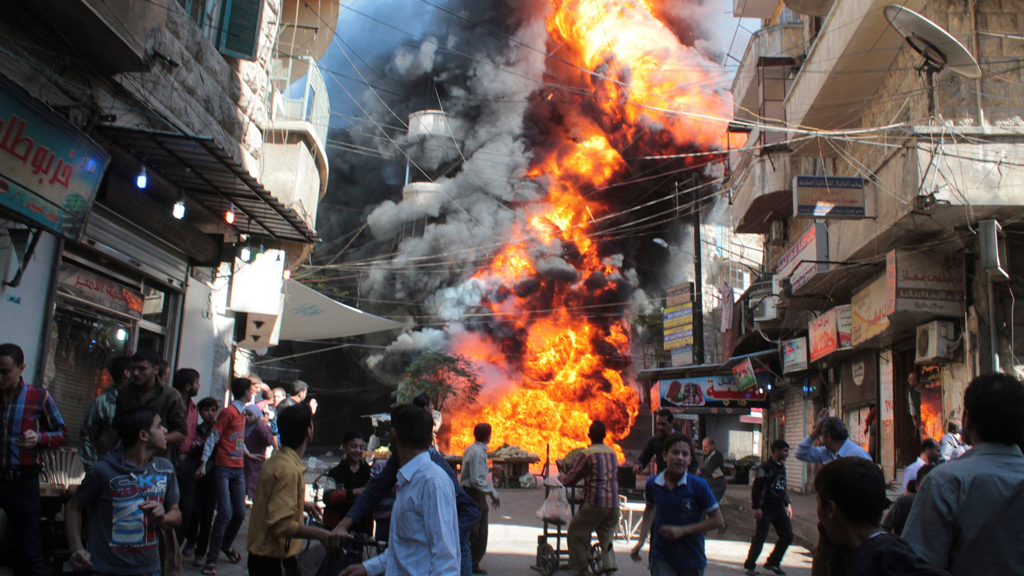
Syrians will no longer allow themselves to be told how to live – neither by ISIL nor by any other religious or secular tyrants. They will insist on having their say and playing their part even in the most adverse conditions. Syrian civil society has survived both Assad and ISIL, and this makes it pretty immortal.
The goal must therefore be to not only enable Syrians to live in freedom and dignity, but also to facilitate a political process of self-discovery that is neither prevented by an unscrupulous power clique or torpedoed by armed jihadists. The first step on this road, which will be rocky and strewn with obstacles, is Assad's departure.
Another reason why a solution that includes Assad is not a solution at all, is that the fighting will not stop as long as he is in power. After the horrors that the Syrians have lived through over the past three years, they will not rest until he has gone.
No matter how much the international community might advocate Assad's survival – Syria's rebels – from the most secular deserter right through to the most radical jihadist – will not lay down their weapons until the regime has been toppled. Anything else is wishful thinking, and diplomats in Washington, Moscow, Brussels and New York are only wasting time if they believe otherwise.
Political prospects
So what should be done? The first prerequisite for negotiations is that the parties at the table have an influence on those waging war in Syria. As long as Assad plays a direct or indirect role in these negotiations, the more radical rebel factions will refuse to participate. This means that the only remaining option is to bolster the National Coalition and the Supreme Military Council allied with it.
Moreover, only when the FSA leadership in Syria has the most effective weaponry at its disposal and gains the upper-hand militarily will it be in a position to win the support of "Islamic Front" brigades and – in the event of a political agreement – move towards a ceasefire.
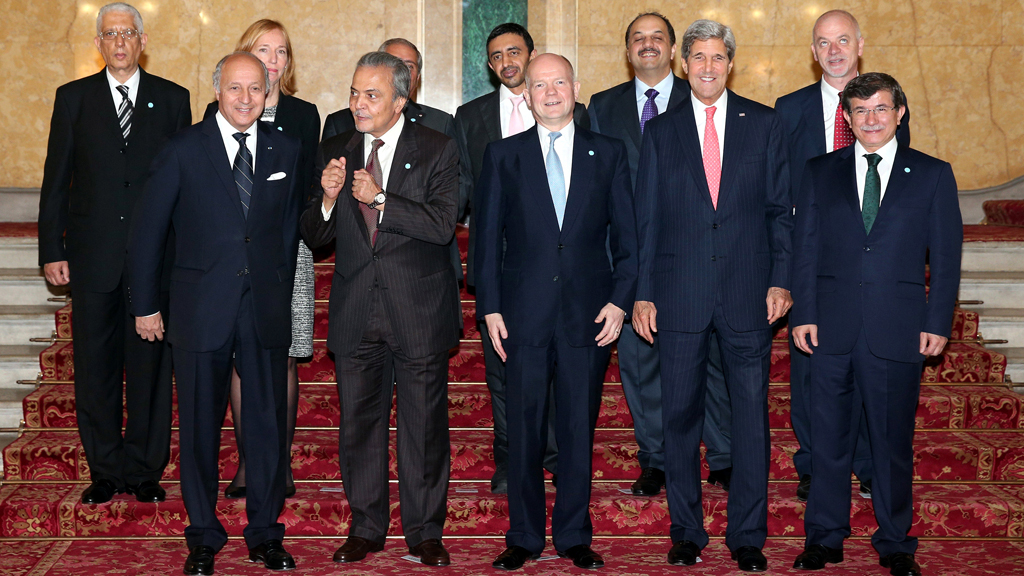
Such an agreement would have to include the gradual handover of power as well as tangible concessions such as unimpeded access for international aid organisations or the release of political prisoners.
The strategy thus far adopted by the "Friends of Syria", which recognises the National Coalition as legitimate representatives of the Syrian people but leaves it without any real leverage, is only fuelling Assad's argument that opposition forces are "vassals of the West".
Consequently, we should provide activists and rebels working together with the National Coalition – which therefore makes them partners in negotiations towards finding a solution – with everything they require to secure a victory over the regime and al-Qaida.
This is not about ground troops or large-scale NATO manoeuvres. Nor is it about dropping bombs to secure regime change, as in Libya, or about waging a war to further individual imperial interests, as in Iraq.
The responsibility to protect Syria
No, the aim in Syria is to help end a war, a war that was forced on Syrians by their regime and that is threatening to destroy a nation. It is called the "responsibility to protect". Where else should this new principle of international law find greater application than in Syria?
Weapons shipments to the "right" forces within the resistance and no-fly zones could bring about the crucial turning point in Syria, but the Europeans and Americans are not prepared to engage militarily without a UN mandate.
Although caution of this nature is generally correct, in Syria's case it is short sighted and counter-productive because moderate forces – with whom we would naturally be allied – are foundering, because the revolt is being radicalised by its Islamist financial backers and because al-Qaida is able to flourish within the imploding nation that is Syria.
The signal that the West is sending out in the case of Syria is this: "what Assad is doing is terrible, what al-Qaida is doing is terrible, but you have to sort it out for yourselves!" And after three years of this, what have the Syrians learned? Europe and America may be champions of freedom, human rights and democracy, but they cannot be relied upon.
Kristin Helberg
© Qantara.de 2014
Translated from the German by Nina Coon
Editor: Aingeal Flanagan/Qantara.de
